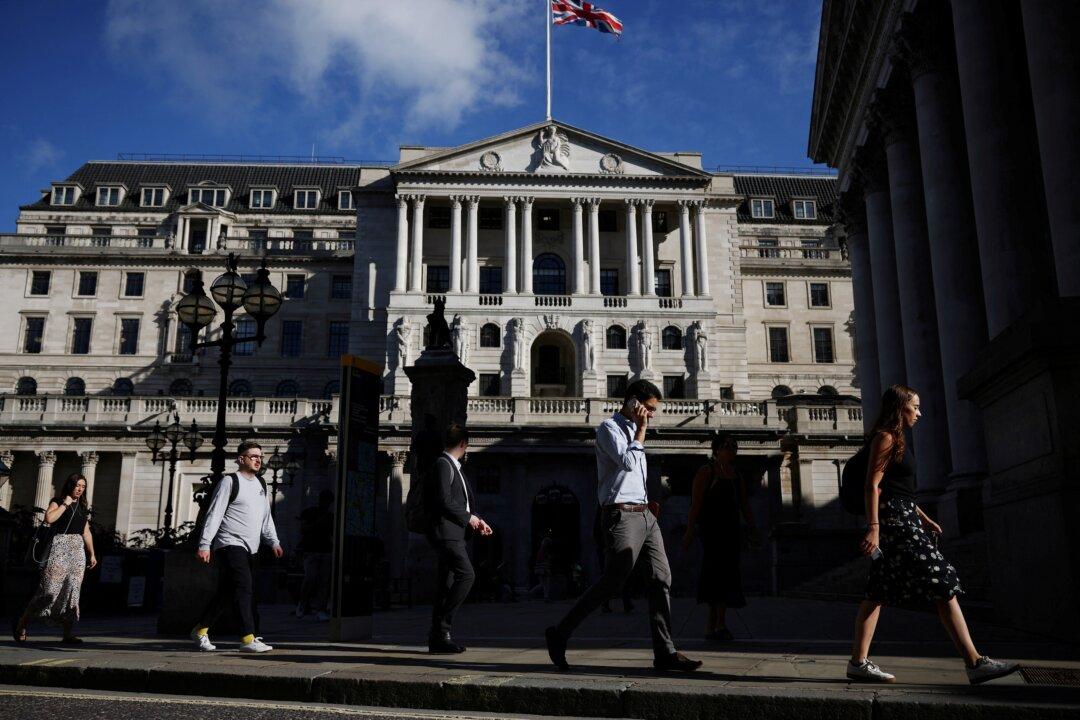The Bank of England, the UK’s central bank, has announced it will raise interest rates to their highest in more than 13 years and indicated it believes the economy is already in recession.
The Bank’s Monetary Policy Committee (MPC) has raised rates from 1.75 to 2.25 percent—the highest since November 2008—in an effort to control inflation, which currently stands at 9.9 percent.





